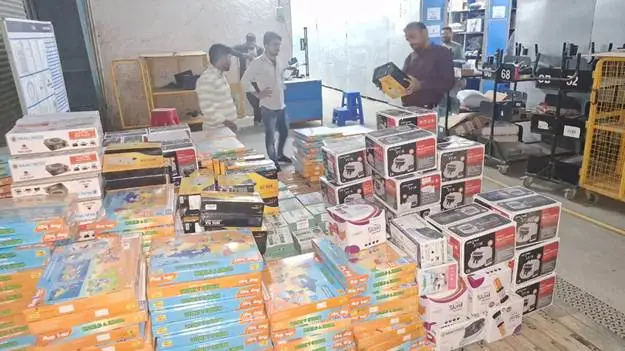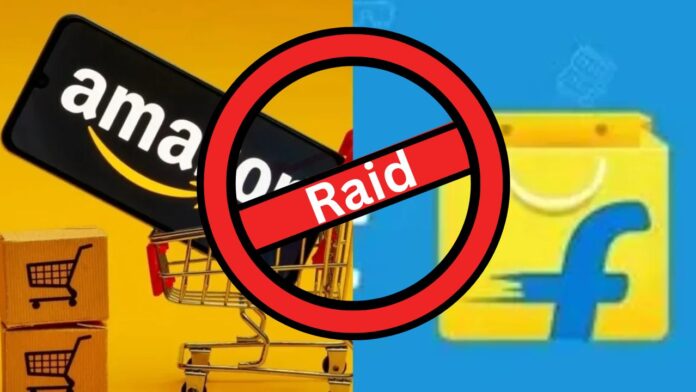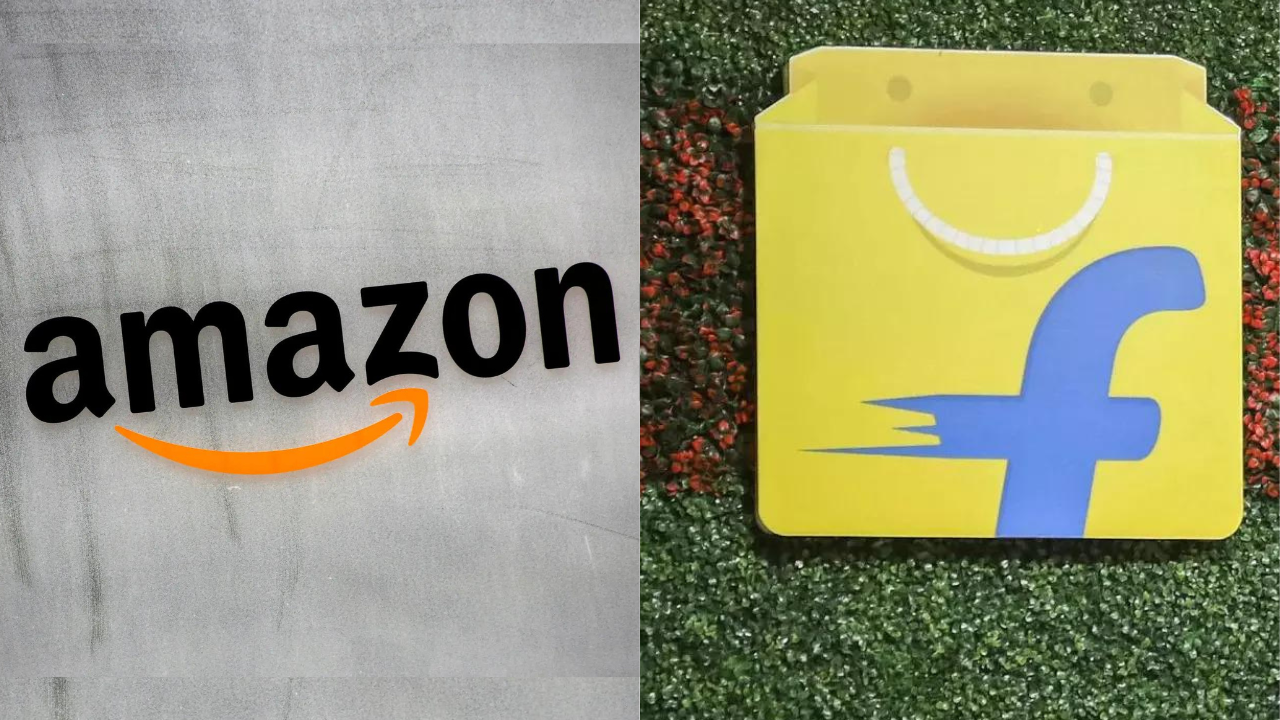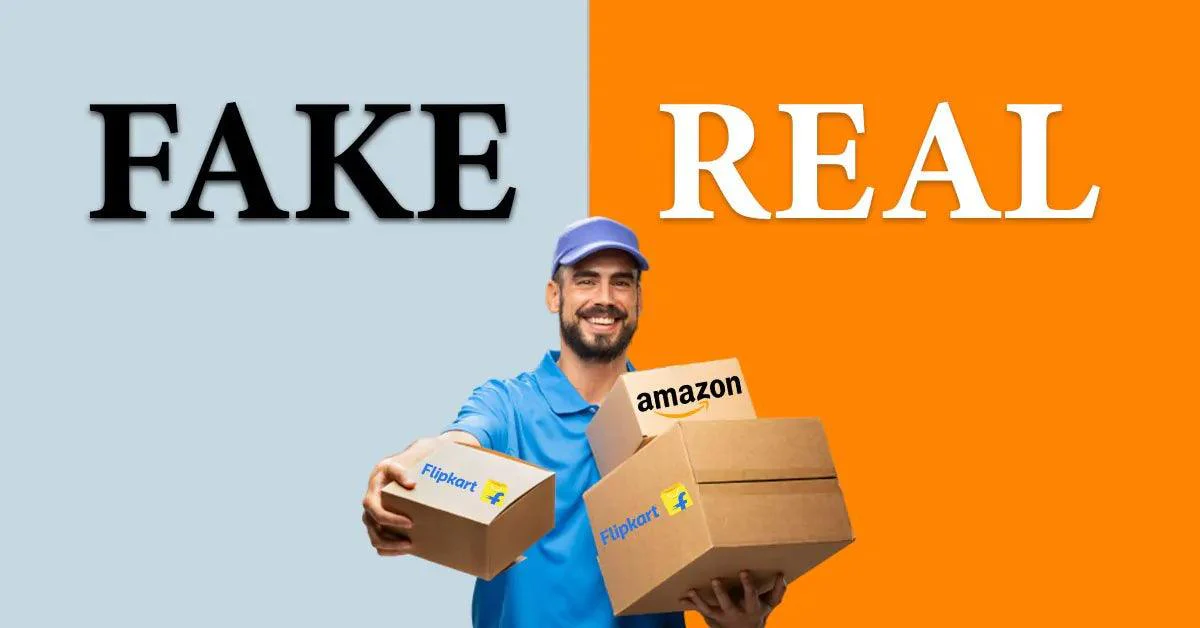Online shopping has transformed the way we buy everything—from electronics to household essentials. Platforms like Amazon and Flipkart have made shopping convenient, but are they really safe? Recent raids by the Bureau of Indian Standards (BIS) have exposed thousands of uncertified, low-quality products being sold online, raising serious concerns about consumer safety.
From electrical appliances that pose fire hazards to children’s toys laced with toxic chemicals, the unchecked sale of uncertified goods is a ticking time bomb. While sellers are responsible for ensuring product safety, e-commerce platforms also share the blame for allowing such items on their marketplaces. Regulatory bodies like BIS are cracking down, but is it enough?
What Exactly Happened?
In March 2025, BIS officials carried out surprise inspections at Amazon and Flipkart warehouses across several Indian cities, including Delhi, Gurugram, and Lucknow. These raids led to the seizure of over 10,000 products lacking the mandatory BIS certification, which ensures items meet India’s quality and safety standards. The uncertified products ranged from everyday household items like electric water heaters and food mixers to toys and sports footwear. Such large-scale seizures highlight a significant concern regarding the safety of products sold on these e-commerce platforms.
Where Did These Raids Occur?
The BIS conducted operations in multiple locations:
- Delhi: At Amazon’s warehouse in the Mohan Cooperative Industrial Area, officials seized more than 3,500 products, including geysers and food mixers, worth approximately ₹70 lakh.
- Gurugram: In a Flipkart warehouse operated by Instakart Services Pvt Ltd, BIS confiscated 534 stainless steel bottles, 134 toys, and 41 speakers, all lacking certification.
- Lucknow: An Amazon warehouse was found storing 215 uncertified toys and 24 hand blenders.
These raids underscore the widespread nature of the issue, affecting multiple regions and a variety of products.
How Did This Situation Arise?
The rapid growth of online marketplaces has led to millions of product listings, making it difficult to monitor each item effectively. While Amazon and Flipkart have policies in place to ensure sellers adhere to quality standards, the sheer volume of listings means that many uncertified products slip through the cracks.
Some sellers deliberately bypass safety regulations by offering products that lack BIS certification, which is mandatory for certain categories like electrical appliances and toys. These sellers often prioritize quick sales and high margins over compliance with safety norms. As a result, unsuspecting buyers end up purchasing potentially hazardous items, including substandard electronics that could catch fire or toys that contain harmful chemicals.
Who Bears the Responsibility?
The issue of uncertified products reaching consumers is a collective failure involving multiple parties. Each stakeholder in the e-commerce ecosystem has a role to play in preventing this problem:
- Sellers
Sellers are directly responsible for ensuring that the products they list comply with Indian safety regulations. Bypassing certification laws is not just illegal—it is dangerous. Selling uncertified items can lead to serious consequences, including consumer harm, legal action, and loss of credibility. However, due to the high competition in the marketplace, many sellers choose to ignore safety norms to offer cheaper products and attract more buyers.
- E-Commerce Platforms
Platforms like Amazon and Flipkart act as intermediaries, connecting sellers with buyers. While they claim to have strict quality control policies, the reality is that many uncertified products are regularly listed and sold. The presence of such items on their platforms suggests loopholes in their verification process.
If a product turns out to be unsafe, consumers naturally hold the platform responsible, even though the seller is at fault. This damages trust in online shopping, which can have long-term repercussions for the industry. To prevent such issues, stronger enforcement mechanisms and proactive removal of non-compliant listings are essential.
- Regulatory Authorities
The Bureau of Indian Standards (BIS) plays a crucial role in setting safety benchmarks for consumer products. Their recent raids and product seizures indicate that enforcement is increasing, but challenges remain. The regulatory body cannot inspect every single warehouse or online listing, so it relies on complaints and periodic crackdowns to identify violations.
While the BIS is taking steps to address this problem, a more proactive approach is needed. Stricter penalties for non-compliance, frequent market inspections, and collaborations with e-commerce companies can help curb the sale of uncertified products.
Why Is This Issue Critical?
The presence of uncertified products in the online marketplace is not just a regulatory concern—it directly affects consumer safety, public health, and economic stability.
- Safety Hazards
Electrical appliances that do not meet safety standards can cause short circuits, electric shocks, or even house fires. Substandard products often overheat, malfunction, or fail prematurely, putting lives at risk. Consumers who purchase these items are unknowingly exposing themselves and their families to serious dangers.
- Health Risks
Many uncertified products, particularly children’s toys, may contain toxic chemicals like lead or phthalates, which are harmful to young children. Exposure to these substances can cause developmental disorders, allergic reactions, and other long-term health issues. The fact that such products are being sold freely on popular e-commerce platforms is a major concern for parents.
- Economic Impact
Consumers who buy faulty or unsafe products not only waste their money but may also face additional expenses for replacements or repairs. In the worst cases, defective appliances can cause property damage, leading to financial losses far beyond the original purchase price.
For e-commerce platforms, the repeated sale of substandard goods can erode consumer trust. If customers lose confidence in the safety and reliability of online shopping, they may return to traditional retail stores, impacting the growth of India’s booming e-commerce industry.
What Measures Can Be Taken?

Tackling this issue requires a joint effort from regulators, e-commerce platforms, sellers, and consumers. Several steps can help address the problem effectively:
- Stricter Enforcement by Regulatory Bodies
- The BIS and other government agencies must continue conducting regular inspections of warehouses and online listings.
- Heavier penalties should be imposed on sellers who repeatedly violate certification laws.
- A dedicated task force should be established to monitor online marketplaces for violations in real time.
- Enhanced Monitoring by E-Commerce Platforms
- Platforms should introduce AI-based algorithms that automatically detect and remove uncertified products.
- Stronger seller verification measures must be implemented to ensure only compliant businesses can list products.
- A dedicated complaint mechanism should be available for consumers to report suspicious listings, leading to swift action.
- Consumer Awareness and Vigilance
- Customers should be educated about checking for BIS certification before making a purchase.
- Platforms should display clear warnings on uncertified products and offer better refund policies for defective items.
- Public awareness campaigns should be conducted to help buyers identify and avoid substandard goods.
- Collaboration Between Government and E-Commerce Companies
- Authorities and online platforms must work together to identify repeat offenders and permanently ban non-compliant sellers.
- The government should introduce mandatory compliance audits for all major e-commerce players.
- Import regulations should be strengthened to prevent the entry of uncertified foreign products into India’s online market.
Understanding BIS Certification
The Bureau of Indian Standards (BIS) is the national standards body of India, responsible for ensuring the quality and safety of products sold in the country. BIS certification indicates that a product meets the prescribed Indian standards and is safe for consumer use. Certain products, especially those that can impact health and safety, are required to have mandatory BIS certification. These include electrical appliances, toys, and various household items. The certification process involves rigorous testing and evaluation to ensure compliance with quality standards.
The Scale of the E-commerce Market in India
India’s e-commerce market has witnessed exponential growth over the past decade. According to estimates by consultancy firm Bain, the market was valued between $57 billion and $60 billion in 2023 and is projected to exceed $160 billion by 2028. This rapid expansion has been driven by increased internet penetration, smartphone usage, and a growing preference for online shopping among consumers.
Previous Incidents Highlighting Product Safety Concerns
The recent BIS raids on Amazon and Flipkart warehouses are not isolated incidents. Over the years, multiple cases have emerged where substandard or uncertified products have posed risks to Indian consumers. These incidents highlight the need for stricter enforcement of quality regulations and better compliance from e-commerce platforms.
- Substandard Electrical Appliances in Mumbai (2023)
In 2023, Mumbai’s consumer protection authorities seized over 1,000 substandard electrical appliances, including extension cords, power strips, and mobile chargers from local markets and online sellers. Many of these items lacked the necessary BIS certification, and some were found to be counterfeit versions of reputed brands.
Consumers who purchased these products reported issues such as overheating, short circuits, and even minor electrical fires. The government later issued warnings advising people to avoid buying cheap, uncertified electronic items online.
- Fake Cosmetic Products Sold Online (2022)
A nationwide crackdown on counterfeit beauty products in 2022 exposed a major issue on e-commerce platforms. Authorities discovered fake versions of popular skincare and cosmetic brands being sold on Amazon and Flipkart.
Many of these products contained harmful chemicals, leading to skin allergies and infections. The Food Safety and Standards Authority of India (FSSAI) intervened, urging platforms to implement stricter seller verification processes to prevent the sale of counterfeit beauty products.
- Unsafe Toys in Delhi and Bengaluru (2021-2022)
Between 2021 and 2022, raids in Delhi and Bengaluru uncovered huge quantities of unsafe toys being sold both online and in physical stores. BIS officials seized over 18,000 non-certified toys, many of which contained harmful substances like lead and phthalates.
Children exposed to these toxic chemicals were at risk of developmental issues and serious health hazards. After these incidents, the Indian government made BIS certification mandatory for all toys sold in the country. However, recent raids show that non-certified products are still finding their way into the market.
- Substandard PPE Kits and Sanitizers During COVID-19 (2020)
During the peak of the COVID-19 pandemic in 2020, demand for PPE kits, masks, and sanitizers skyrocketed. Unscrupulous sellers took advantage of the situation by flooding the market with fake or low-quality protective gear.
Investigations revealed that many hand sanitizers sold online contained toxic methanol, which can cause serious health issues, including blindness. Similarly, counterfeit N95 masks failed to provide proper protection against the virus, putting frontline workers and consumers at risk.
These incidents prompted government crackdowns and led to stricter quality control measures for medical and hygiene products.
- Chinese Electronic Products Without Certification (2019)
In 2019, the Indian government flagged a growing issue: cheap, uncertified electronic gadgets and accessories imported from China were being sold extensively on Indian e-commerce sites.
Products such as LED lights, mobile chargers, and Bluetooth earphones were found to violate safety standards. Many of these items posed fire hazards, and in some cases, customers reported exploding chargers and short circuits.
Following these concerns, the government tightened import regulations and increased customs checks on electronic products. However, enforcement remains a challenge, as uncertified items continue to appear in online marketplaces.
The Challenges in Regulating Online Marketplaces
Despite strict regulations, why do uncertified and substandard products keep entering the market? Several challenges make it difficult to fully control this issue:
- Lack of Direct Oversight
E-commerce platforms function as marketplaces where thousands of third-party sellers list their products. Unlike traditional retail stores, where goods go through a physical quality check, online marketplaces rely on self-regulation by sellers.
Many sellers take advantage of this system to list uncertified, low-quality products, hoping they will not be caught. This makes real-time monitoring difficult, especially when dealing with millions of product listings.
- Loopholes in Seller Verification
Although platforms claim to have strict verification processes, loopholes still exist. Some sellers register multiple accounts to evade bans, while others provide fake certification documents to get their products listed.
For example, in past cases, authorities found sellers using BIS logos without actual certification, misleading both consumers and platforms.
- Difficulty in Tracking Counterfeit Products
Counterfeit products are a major issue in online marketplaces. Many fake products are made to look identical to well-known brands, making it hard for consumers to distinguish between genuine and counterfeit goods.
In some cases, even reviews on e-commerce sites are manipulated to make fake products seem trustworthy. Fake reviews, often posted by bots or paid users, mislead buyers into purchasing unsafe goods.
- Consumer Awareness and Trust Issues
Many Indian consumers still assume that all products sold on major e-commerce sites are genuine. However, recent cases prove that even well-known platforms struggle with quality control.
Lack of awareness about BIS certification and other quality standards leads to buyers unknowingly purchasing unsafe items. More consumer education is needed to help people make informed choices when shopping online.
Opinion
The recent BIS raids highlight a critical gap in the e-commerce ecosystem regarding product safety. While online shopping offers unparalleled convenience, it should not come at the cost of consumer well-being. E-commerce giants like Amazon and Flipkart have revolutionized retail, but with great power comes great responsibility. They must prioritize consumer safety by enforcing stricter compliance measures for sellers. Additionally, consumers should remain vigilant, checking for BIS certification and reporting suspicious products. A collaborative effort among regulators, platforms, sellers, and buyers is essential to ensure that the products in our homes are safe and reliable.
Final Thoughts: Are We Truly Safe While Shopping Online?

The recent BIS raids are a wake-up call for both regulators and consumers. While online shopping has revolutionized retail, it has also created serious challenges in product safety enforcement.
E-commerce platforms must take greater responsibility to prevent uncertified goods from reaching consumers. They have the resources to implement better monitoring, but stricter government regulations and consumer vigilance are also essential.
At the same time, consumers must stay informed and actively check for certifications before making a purchase. The convenience of online shopping should not come at the cost of our safety and well-being.
As India’s e-commerce market continues to grow, ensuring product quality and consumer protection must be a top priority. Otherwise, incidents like these raids will keep happening, putting millions of buyers at risk.
So, the next time you order something online, ask yourself: Is this product really safe?



